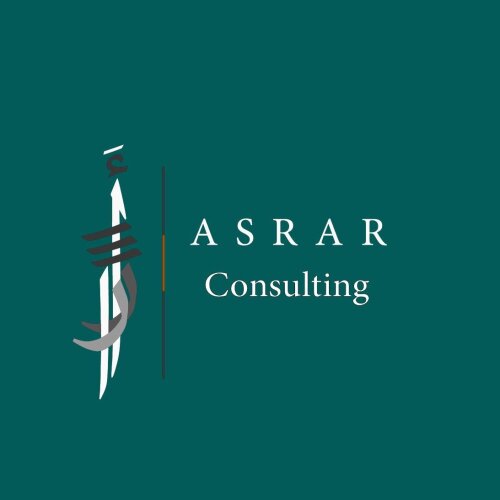Best Housing, Construction & Development Lawyers in Palestine
Share your needs with us, get contacted by law firms.
Free. Takes 2 min.
Free Guide to Hiring a Real Estate Lawyer
Or refine your search by selecting a city:
List of the best lawyers in Palestine
About Housing, Construction & Development Law in Palestine
Housing, Construction, and Development law in Palestine is a complex field influenced by a variety of factors including the unique political, social, and economic circumstances within the region. Palestine's legal framework in this area is a combination of laws from the Ottoman, British Mandate, Jordanian, Egyptian, and Israeli periods, alongside newly enacted laws by the Palestinian Authority. This legal mosaic addresses various aspects of urban planning, construction standards, land use, and environmental considerations. The intricacies of property rights, zoning regulations, and construction permits are critical for developing infrastructure and building projects in both rural and urban settings.
Why You May Need a Lawyer
Legal assistance in Housing, Construction, and Development is essential in many scenarios, including:
- Property Disputes: Conflicts over land ownership or property boundaries often require legal intervention.
- Construction Permits: Navigating the permit approval process requires understanding of local regulations.
- Contract Drafting and Review: Ensuring that all agreements comply with legal standards and protect your interests.
- Zoning and Land Use Issues: Compliance with local zoning laws can impact the feasibility of development projects.
- Compliance with Environmental Laws: Adherence to environmental regulations is critical for any development project.
Local Laws Overview
The local legal framework for Housing, Construction, and Development in Palestine encompasses several key aspects:
- Land Ownership and Registration: This involves understanding the documentation and processes necessary to secure land titles.
- Planning and Zoning Regulations: These laws govern land use and dictate the permissible types of development in different areas.
- Building Codes and Standards: Compliance with construction standards is essential to ensure safety and quality in buildings.
- Environmental Protection Laws: Developers must adhere to environmental regulations that safeguard natural resources and manage waste.
- Dispute Resolution Mechanisms: Mechanisms for resolving conflicts related to property and development issues.
Frequently Asked Questions
What documents are necessary for registering a property in Palestine?
Documents such as the title deed, land survey plans, identification papers, and proof of purchase are typically required.
How can I obtain a construction permit?
Submit an application to the relevant municipal authority, including architectural plans and compliance with zoning regulations.
What are the common zoning classifications in Palestine?
Zoning types generally include residential, commercial, industrial, agricultural, and mixed-use areas.
What should I consider when buying land in Palestine?
Verify land ownership, ensure proper registration, check zoning laws, and investigate any existing liens or claims.
Can I appeal against a zoning decision?
Yes, individuals can often appeal zoning decisions to designated local committees or legal bodies.
How do environmental laws affect construction projects?
Environmental laws may impose restrictions on construction activities to protect natural habitats and manage pollution.
Is legal guidance necessary for drafting construction contracts?
Yes, hiring a lawyer helps ensure that contracts are comprehensive, fair, and legally binding.
What recourse is available for construction defects?
Legal action can be taken against responsible contractors or developers to seek repairs or damages.
How are property disputes typically resolved?
Disputes can be resolved through negotiation, mediation, arbitration, or ultimately through courts.
What role do local municipalities play in development projects?
Municipalities regulate planning, grant permits, enforce compliance, and oversee infrastructure development.
Additional Resources
Consider reaching out to the following resources for assistance:
- Palestinian Land Authority: Manages land ownership records and disputes.
- Ministry of Local Government: Oversees urban planning and municipal services.
- Local Municipalities: Responsible for zoning, permits, and public infrastructure projects.
- Non-governmental Organizations: Some NGOs provide support and advocacy on housing rights and development issues.
Next Steps
If you require legal assistance in Housing, Construction, and Development, consider the following steps:
- Consult a Legal Professional: Engage with a lawyer who specializes in local real estate and development laws.
- Gather Documentation: Collect all relevant documents, including property records, contracts, and correspondence.
- Research Your Issue: Understand the basic legal principles that relate to your specific situation.
- Contact Relevant Authorities: Approach local authorities or bodies connected to your case for guidance and intervention.
- Consider Dispute Resolution Options: Explore mediation or arbitration as alternatives to court proceedings.
Lawzana helps you find the best lawyers and law firms in Palestine through a curated and pre-screened list of qualified legal professionals. Our platform offers rankings and detailed profiles of attorneys and law firms, allowing you to compare based on practice areas, including Housing, Construction & Development, experience, and client feedback.
Each profile includes a description of the firm's areas of practice, client reviews, team members and partners, year of establishment, spoken languages, office locations, contact information, social media presence, and any published articles or resources. Most firms on our platform speak English and are experienced in both local and international legal matters.
Get a quote from top-rated law firms in Palestine — quickly, securely, and without unnecessary hassle.
Disclaimer:
The information provided on this page is for general informational purposes only and does not constitute legal advice. While we strive to ensure the accuracy and relevance of the content, legal information may change over time, and interpretations of the law can vary. You should always consult with a qualified legal professional for advice specific to your situation.
We disclaim all liability for actions taken or not taken based on the content of this page. If you believe any information is incorrect or outdated, please contact us, and we will review and update it where appropriate.
Browse housing, construction & development law firms by city in Palestine
Refine your search by selecting a city.












